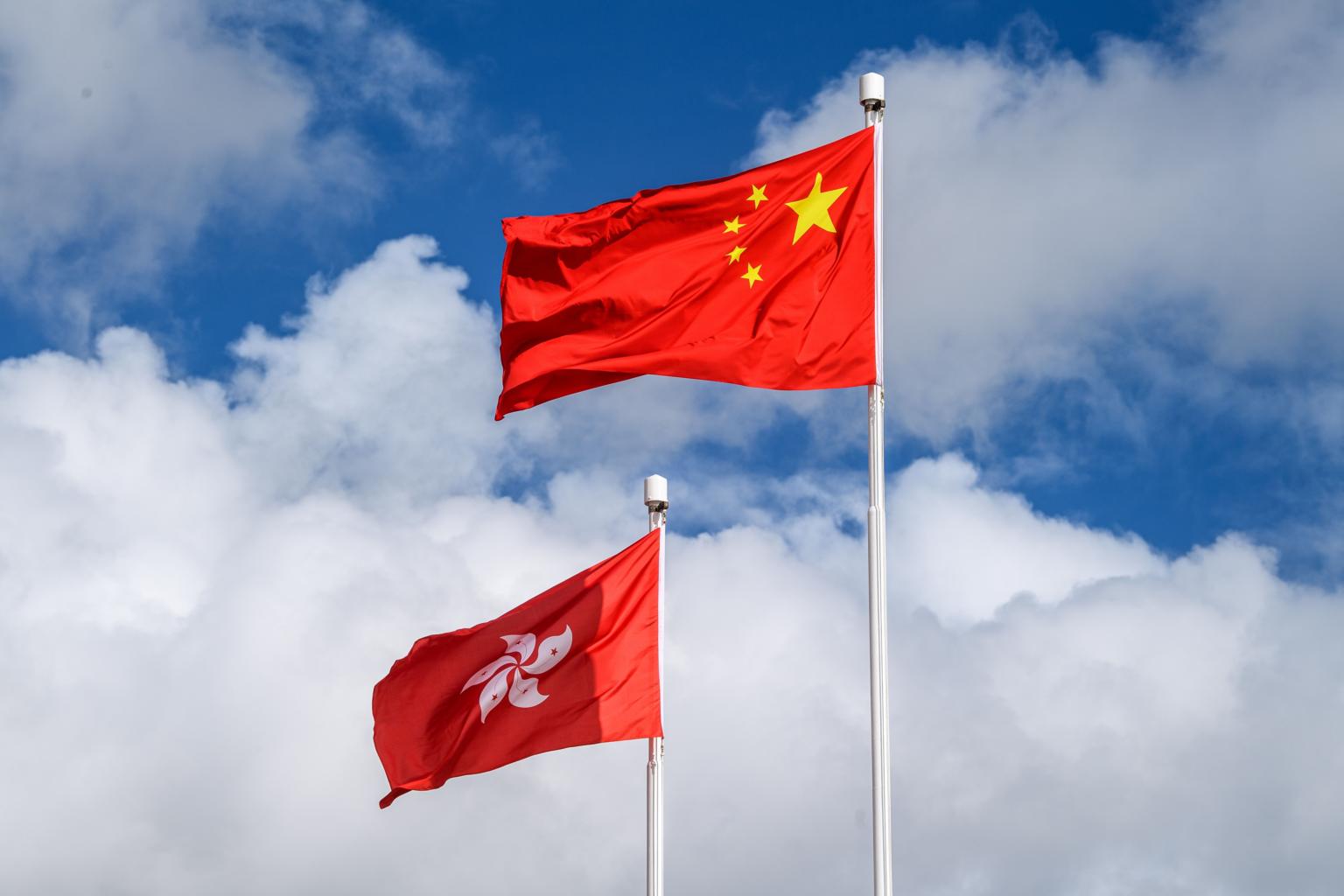What impact does US moves on Hong Kong and China have?
Sign up now: Get insights on Asia's fast-moving developments

The Chinese and Hong Kong flags are seen hoisted in Hong Kong on July 1, 2020.
PHOTO: AFP
Follow topic:
United States President Donald Trump has moved not just to end the special status accorded to Hong Kong by his country but also signed a Bill that would sanction Chinese officials said to be responsible for coming down hard on political dissent in the city. The US announcement drew a rebuke from Beijing, which vowed to impose retaliatory sanctions on US individuals and entities, adding fresh uncertainty for businesses in the Asian financial hub.
Q: What's so unique about Hong Kong's special status?
A: Under the US-Hong Kong Policy Act of 1992, the US gives preferential treatment to Hong Kong in trade and economic relations as long as the city remains "sufficiently autonomous" from the mainland. Hong Kong has enjoyed such separate and special treatment since the 1997 handover by the United Kingdom to China, on the basis that Beijing practises the "one country, two systems" model, which was agreed by China and guaranteed a high degree of freedoms for Hong Kong.
Q: What does treating Hong Kong separate from the mainland mean?
A: Hong Kong is not subject to rules applied to the mainland.
Q: How extensive can the impact be?
A: Previously, as a separate customs territory for imports into the US, Hong Kong was not subject to tariffs placed on China, including the wide-ranging Section 301 tariffs on about US$370 billion (S$513 billion) of Chinese goods now in place.
In the past, under the Export Administration Regulations (EAR) and International Traffic in Arms Regulations (ITAR), exports like goods, software and technology to Hong Kong received favourable treatment. These would now be subject to more restrictive controls. Some exports would immediately require licensing and certain exports relating to military or satellite items would be strictly prohibited.
In terms of US immigration policy, Hong Kong passport holders will no longer be treated any differently from China passport holders.
The US will also suspend the extradition agreement between Hong Kong and the US, as well as end the training of members of the Hong Kong Police Force or security services at the US Department of State's International Law Enforcement Academies.
The impact spills over into the academic world as US suspends cooperation with the Chinese University of Hong Kong in earth sciences research and ends the Fulbright exchange programme with both China and Hong Kong.
Q: What is the Hong Kong Autonomy Act?
A: On July 2, the US Congress passed the Hong Kong Autonomy Act (HKAA) that allows mandatory sanctions against individuals, entities and financial institutions said to be behind China's national security law for Hong Kong.
Q: What can the Hong Kong Autonomy Act do?
A: There are 10 points listed under potential sanctions.
They are: refusal of credit from any US institution; prohibition from acting as a primary dealer in US debt; a ban from acting as an agent of the US government for US public funds; a ban on foreign-exchange transactions; a ban on the financial institution entering into transactions with other financial institutions; a ban on the financial institution from holding, using or dealing with any property; no export of commodities or software to the financial institution; not allowing any US person from investing in equity or debt of the financial institution. These are all subject to the reach of US jurisdiction.
The sanctions exclude officers or controlling shareholders from the US but allows the government to impose them on individual officers of the financial institution.
Q: What is the potential damage?
A: Identified individuals may be banned from entering the US. Business or dealings with these people designated as a US sanctions target would also be affected. For instance, an immediate asset freeze would expose all assets the individual has interests in and could severely limit options for divestment or exits from financial relationships.
Q: What are the US stake in Hong Kong?
A: Hong Kong was the source of the largest bilateral US goods trade surplus last year, at US$26.1 billion and is a huge market for US legal and accounting businesses.
The US State Department says 85,000 US citizens lived in Hong Kong in 2018 and more than 1,300 US companies operate in the city, including nearly every major US financial firm. More than 1,300 US firms have offices there.

